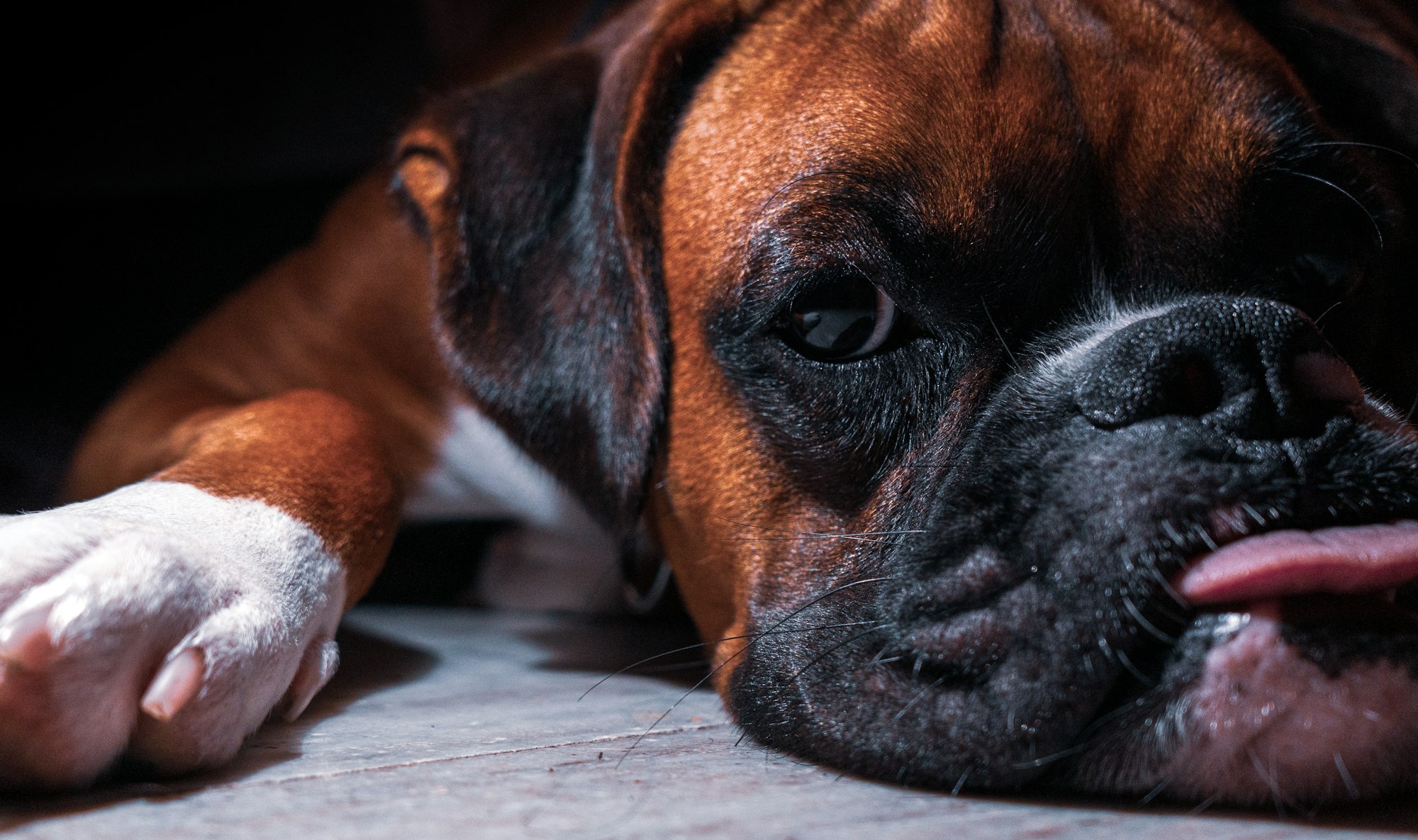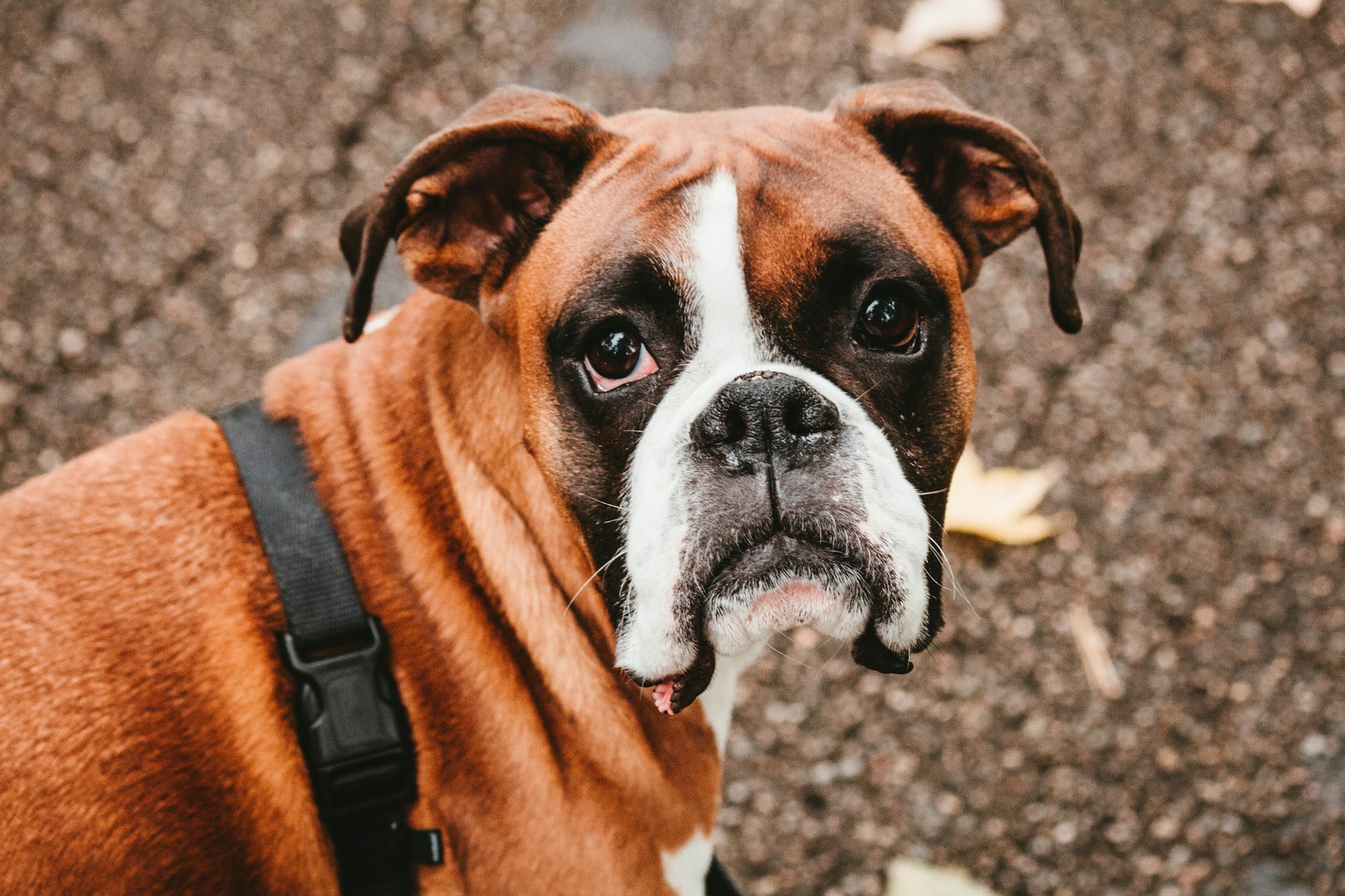When it comes to canine companions, few breeds can match the charm and appeal of miniature boxers. These pint-sized pooches captivate the hearts of dog lovers with their adorable looks, friendly disposition, and playful nature. In this article, we will explore the world of miniature boxers, delving into their history, physical attributes, temperament, training needs, and more. So, let's dive in and discover why miniature boxers are becoming increasingly popular among dog enthusiasts.

History of Miniature Boxers
The history of miniature boxers is rooted in their larger counterparts, the standard boxers. Standard boxers were developed in Germany in the late 19th century and were initially bred for bull-baiting and later as versatile working dogs. Over time, breeders aimed to create a smaller version of boxers that possessed the same remarkable qualities but in a more compact size. This led to the emergence of miniature boxers, which quickly gained popularity for their appealing attributes.
Physical Characteristics
Appearance
Miniature boxers bear a striking resemblance to standard boxers, showcasing a muscular build, strong jawline, and a distinctive square-shaped head. They have expressive eyes that radiate warmth and intelligence, accompanied by a button nose and floppy ears. Their overall appearance exudes athleticism and grace, making them undeniably captivating.
Size and Weight
As their name suggests, miniature boxers are smaller than their standard counterparts. On average, they stand between 12 to 15 inches (30 to 38 cm) at the shoulder and weigh between 25 to 35 pounds (11 to 16 kg). Their compact size makes them ideal for individuals or families living in smaller spaces.
Coat and Colors
Miniature boxers boast a short, smooth coat that requires minimal grooming. Their coat can come in various colors, including brindle, fawn, white, and combinations of these shades. The coat's glossy sheen adds to their overall appeal, making them even more irresistible.
Temperament and Personality
Friendly and Sociable Nature
One of the most endearing qualities of miniature boxers is their friendly and sociable nature. They are known for their love of human companionship and are incredibly affectionate towards their owners. These dogs thrive on interaction and are always eager to join in on family activities, making them an excellent choice for households seeking a loyal and engaging pet.
Playfulness and Energy Levels
Miniature boxers possess an abundance of energy and love to play. They have a playful nature that can brighten anyone's day. These dogs enjoy a good game of fetch or romping around in the yard. Regular exercise and playtime are essential to keep them physically and mentally stimulated, preventing boredom and potential behavioral issues.
Family-Oriented and Gentle
Miniature boxers are renowned for their gentle and loving nature, making them great companions for families. They are patient and tolerant, especially with children, and can form strong bonds with family members of all ages. Their protective instincts also make them excellent watchdogs, ensuring the safety of their loved ones.

Training and Exercise
Training Needs and Methods
Miniature boxers are intelligent dogs that respond well to positive reinforcement training methods. They thrive on praise, treats, and play as rewards for their accomplishments. Consistency, patience, and early socialization are key to raising a well-behaved miniature boxer. Basic obedience training is essential to ensure they understand and follow commands.
Exercise Requirements
While miniature boxers are smaller in size, they still require regular exercise to maintain their physical and mental well-being. Daily walks, play sessions, and interactive toys are vital to keep them active and prevent them from becoming restless or bored. Engaging in activities such as agility training or obedience trials can also be a fulfilling experience for both the dog and the owner.
Mental Stimulation
In addition to physical exercise, miniature boxers thrive on mental stimulation. Puzzle toys, treat-dispensing games, and training sessions that challenge their intellect are all effective ways to keep them mentally sharp. Providing a stimulating environment helps prevent destructive behavior and ensures they remain happy and content.
Health Considerations
Common Health Issues
While miniature boxers are generally healthy dogs, they may be prone to certain health conditions inherited from their parent breeds. Some of the common health issues that miniature boxers may face include hip dysplasia, heart conditions, allergies, and certain types of cancers. Regular veterinary check-ups, a balanced diet, and appropriate exercise can help mitigate these risks.
Lifespan and Care
On average, miniature boxers have a lifespan of 10 to 12 years. Proper care and attention are essential to ensure they lead long, healthy lives. This includes regular veterinary visits, a nutritious diet, regular exercise, and providing a safe and stimulating environment. Grooming requirements are minimal, with occasional brushing and dental care being sufficient to maintain their overall well-being.
Regular Vet Check-ups
Routine veterinary check-ups are crucial to monitor the health of your miniature boxer. Regular vaccinations, parasite prevention, and dental examinations are part of a comprehensive healthcare routine. It is necessary to establish a good relationship with a trusted veterinarian who can provide guidance and address any concerns regarding your dog's health.

Miniature Boxers as Family Pets
Compatibility with Children
Miniature boxers are known for their compatibility with children. Their playful and patient nature makes them great companions for kids of all ages. However, as with any dog breed, supervision, and proper guidance are necessary to ensure both the dog and children interact safely and respectfully.
Interaction with Other Pets
Miniature boxers generally get along well with other pets, including cats and dogs, especially when introduced and socialized from a young age. Early socialization and proper introductions are key to fostering positive relationships between your miniature boxer and other animals in the household.
Adaptability to Living Spaces
One of the advantages of miniature boxers is their adaptability to different living spaces. While they enjoy a backyard to play and explore, they can also thrive in apartments or smaller homes, as long as their exercise and mental stimulation needs are met. They are adaptable dogs that focus on the quality of their interactions rather than the size of their living space.
Grooming and Maintenance
Coat Care
Miniature boxers have short, low-maintenance coats. Regular brushing with a soft-bristle brush helps remove loose hair and keep their coat looking shiny. Occasional baths are necessary to keep them clean and fresh. It's also essential to check their ears regularly for signs of infection and to trim their nails when needed.
Dental Hygiene
Proper dental care is crucial for the overall health of your miniature boxer. Regular brushing with a dog-specific toothbrush and toothpaste help prevent dental issues, such as plaque buildup and gum disease. Additionally, providing dental chews and toys designed to promote oral hygiene can contribute to maintaining healthy teeth and gums.
Nail Trimming
Regular nail trimming is needed to prevent discomfort and potential injuries for your miniature boxer. If you're not comfortable doing it yourself, a professional groomer or veterinarian can assist you. Overgrown nails can be painful for dogs and may cause difficulties when walking or running.
Miniature Boxer Breeders and Adoption
Finding Reputable Breeders
When looking for a miniature boxer puppy, it's essential to find a reputable breeder who prioritizes the health and well-being of their dogs. Reputable breeders will conduct health screenings on their breeding dogs, provide proper care for the puppies, and be transparent about the breed's potential health concerns. Research and ask for recommendations from trusted sources before committing to a breeder.
Rescue and Adoption Centers
Another option for adding a miniature boxer to your family is to consider adoption from a rescue or adoption center. Many wonderful miniature boxers need loving homes. Contact local shelters or breed-specific rescue organizations to inquire about available dogs. Adopting a rescue dog not only provides a forever home for a deserving pup but also allows you to make a positive impact.
Responsible Pet Ownership
Regardless of whether you choose to purchase a miniature boxer from a breeder or adopt one from a rescue, responsible pet ownership is paramount. It involves providing proper care, nutrition, exercise, socialization, and regular veterinary check-ups. Dogs are lifelong companions, and responsible ownership ensures a fulfilling and loving relationship with your miniature boxer.
Miniature Boxer Pricing: Factors to Consider

On average, the price of a miniature boxer puppy from a reputable breeder can range from $1,000 to $3,000 or more. Keep in mind that this is an estimate, and prices can vary significantly depending on the factors mentioned earlier. Puppies with exceptional lineage, champion bloodlines, or unique coat colors or markings may be priced at the higher end of the range.
When considering adding a miniature boxer to your family, it's critical to understand the pricing factors associated with these adorable canine companions. The cost of a miniature boxer can vary depending on various factors, including breed quality, lineage, reputation of the breeder, geographical location, and additional expenses such as vaccinations and health screenings. In this section, we will explore the key factors that influence the pricing of miniature boxers.
Breed Quality and Lineage
The quality of the breed and lineage play a significant role in determining the price of a miniature boxer. Breeders who have spent years refining their breeding program and producing high-quality puppies with desirable traits and characteristics will often charge a premium for their puppies. If the miniature boxer puppy comes from champion bloodlines or has parents with exceptional qualities, the price may be higher due to the increased likelihood of the puppy inheriting those desirable traits.
The reputation of the Breeder
Reputable breeders who prioritize the health and well-being of their dogs will generally charge higher prices for their miniature boxer puppies. These breeders invest significant time, effort, and resources into ensuring that their breeding dogs undergo appropriate health screenings, receive proper care, and are well-socialized. They may also provide guarantees or warranties regarding the health of the puppy, which adds value to their offerings.
Geographical Location
The geographical location can influence the price of miniature boxers. In areas where the demand for these dogs is higher than the supply, the prices may be elevated. Additionally, the cost of living and operating a breeding program can vary in different regions, leading to differences in pricing. It's significant to research and compares prices in your specific location to have a better understanding of the range you can expect.
Additional Expenses and Adoption Options

When purchasing a miniature boxer, it's essential to consider the additional expenses beyond the initial purchase price. These expenses may include vaccinations, microchipping, spaying/neutering, deworming, and initial veterinary check-ups. Responsible breeders often provide these basic healthcare measures before the puppy goes to its new home, but it's crucial to clarify these details and understand the associated costs.
For those who prefer adopting a miniature boxer rather than purchasing from a breeder, adoption fees can vary. Rescue organizations and shelters usually charge an adoption fee to cover the costs of caring for the dog, including veterinary expenses, food, and shelter. The adoption fee can be significantly lower than purchasing a puppy from a breeder, making adoption a more affordable option for those looking to provide a loving home to a miniature boxer in need.
Final Thoughts
Miniature boxers are enchanting and delightful companions, combining the appeal of boxers with a compact size. Their friendly nature, playful personality, and adaptability make them a great choice for individuals and families alike. From their history and physical characteristics to their training needs and health considerations, miniature boxers have a lot to offer as loving and devoted pets. So, if you're seeking a small-sized happy dog with a big heart, consider welcoming a miniature boxer into your home.
FAQs
Q1: Can miniature boxers live in apartments?
Yes, miniature boxers can adapt well to apartment living. They require regular exercise and mental stimulation, but as long as their needs are met, they can thrive in smaller living spaces.
Q2: Are miniature boxers good with children?
Yes, miniature boxers are known for their compatibility with children. They are patient, playful, and enjoy being part of family activities. However, supervision and proper interactions should always be ensured.
Q3: How much exercise do miniature boxers require?
Miniature boxers require regular exercise to keep them physically and mentally stimulated. Daily walks, play sessions, and interactive games are recommended to meet their exercise needs.
Q4: Do miniature boxers shed a lot?
Miniature boxers have short coats that shed moderately. Regular brushing helps minimize shedding and keeps their coat healthy.
Q5: Are miniature boxers prone to any health issues?
While miniature boxers are generally healthy dogs, they may be prone to certain health issues such as hip dysplasia, heart conditions, allergies, and certain types of cancers. Regular veterinary check-ups and proper care can help mitigate these risks.

